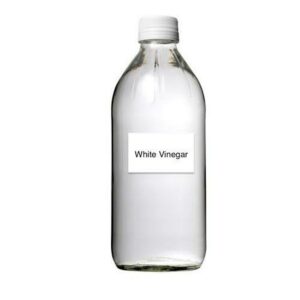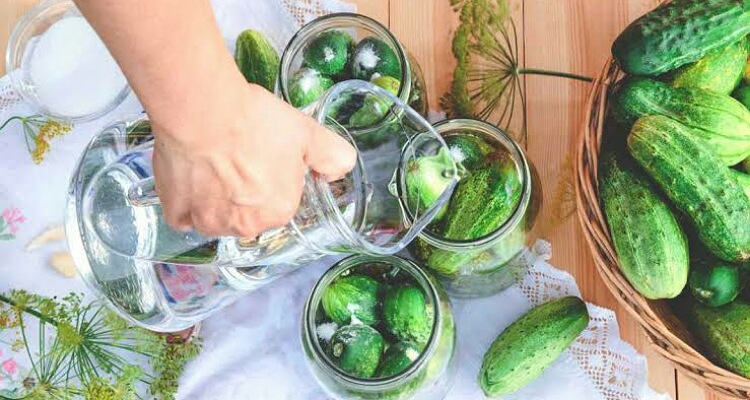White vinegar is an essential cupboard staple. It has a number of uses in cleaning, cooking, gardening, and as a medicine. What exactly is white vinegar? What is its origin? What is are its uses? Does it have any health benefits or side effects?
White vinegar
White vinegar is also called as spirit vinegar or distilled vinegar. It has been used in several households since many centuries. Ancient people also knew its worth. It has found great place in culinary, medicinal, gardening and cleaning applications. It is a highly versatile liquid.

This vinegar is a clear and transparent colorless solution that consists of around 4 to 7% of acetic acid in 93 to 96% of water. There are also some concentrated forms of this vinegar that have around 20% of acetic acid in them. But such a high concentration of the solution is reserved for agricultural and cleaning purposes. They are not safe for human consumption.
The vinegar comes from the fermentation process of foods such as potatoes, sugar beets, molasses or milk whey. Nowadays, most of these comes from fermentation of the grain alcohol or ethanol.
Uses
White vinegar has a stronger flavor compared to the other types of drinkable vinegars in the market. Hence, it is good only when added to recipes. It comes handy in the making of pickles of vegetables, fruits and eggs. One can also add a small amount of it to salads of various kinds. This addition enhances their flavor. But add the vinegar in steps as too much of it in the salad dish can spoil its taste.
Moreover, vinegar is also an essential ingredient in the making of various sauces and marinades. It gives an extra zing to these dishes. Additionally, it can assist in the tenderization of meat, vegetables, and seafood.

Along with baking soda, it is of use in baking industry as a leavening agent. This acid reacts with the baking soda to form and release carbon di oxide that can fluff up the dish and make it soft. It also finds use in making of cheese. When added to milk, it curdles it and a soft cheese results.
It has been of use as a cleaning agent or disinfectant and also in the gardens to eliminate weeds. It keeps cut flowers fresh for a longer time. Moreover, vinegar of all types have medicinal uses and health benefits.
Health benefits
Besides adding flavor to foods, vinegar can help to lower blood sugars. Some studies have supported this benefit. It can be a helpful aid for weight management. This is because it can give a feeling of fullness to the consumer and thus assist in lower calories intake and weight loss.
Some animal studies also showed that mice fed vinegar had a lower blood cholesterol levels after meals. But there is a need for more research in this direction in humans.

Vinegar also has antimicrobial properties. One can apply it to nails to reduce nail fungal growths. It can also be applied on warts and in treatment of ear infections. It is a good topical agent for treatment of skin burns and infections.
Also, read Apple cider vinegar: preparation, uses, health, skin, and hair benefits!
Have it in moderation. Excessive amounts can cause inflammation and lead to digestive issues and heartburn. It can also negatively affect tooth enamel. Some studies have rated white vinegar as the worst in this matter.
